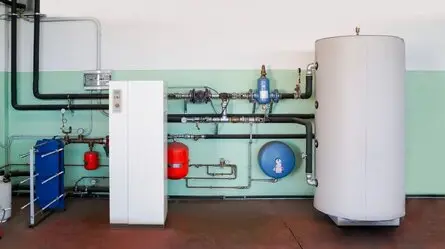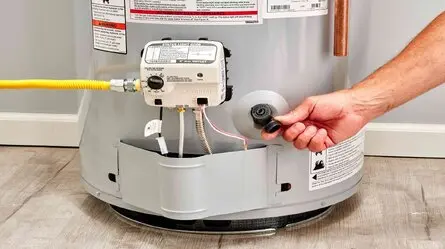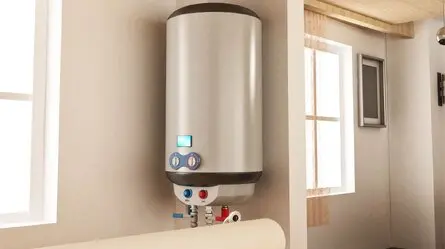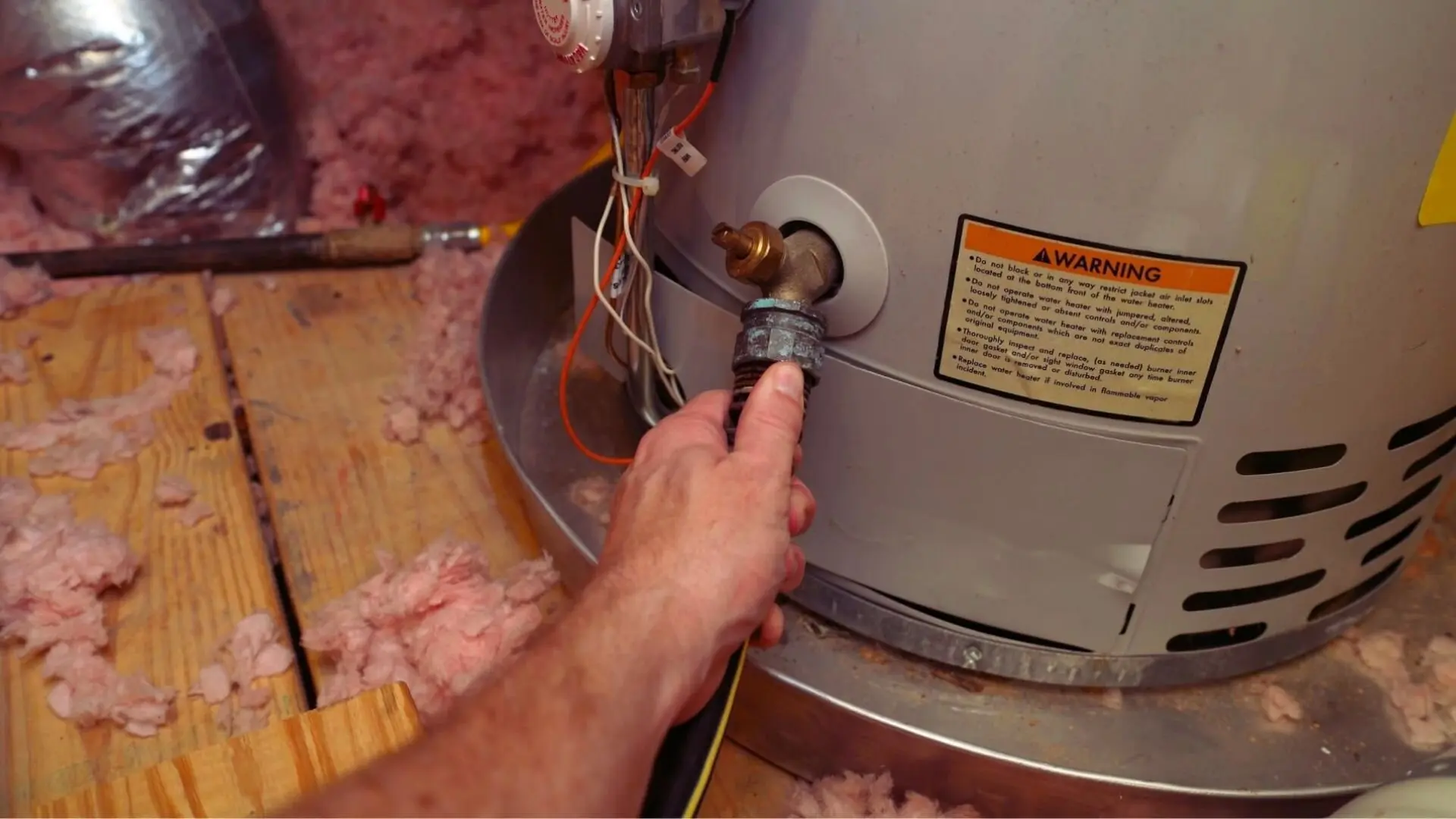
For those who own a home or enjoy DIY projects, getting the hang of home maintenance is key. A vital part of this is knowing how to properly drain your hot water system. While it might seem a bit intimidating at first, mastering these techniques can help you avoid future headaches and extend the life of your equipment.
In this comprehensive guide, we’ll take you through the step-by-step process of draining your hot water system. Whether you’re doing routine maintenance, swapping out a faulty part, or dealing with sediment build-up, getting the hang of this skill will give you the confidence to handle these tasks yourself.
So, let’s explore the essential techniques and expert tips for draining your hot water system successfully.
Importance of Regular Hot Water System Maintenance
Regular hot water system maintenance is paramount to ensuring the efficiency and reliability of your water heating system. By incorporating a routine maintenance schedule, you can prevent potential issues, extend the lifespan of your equipment, and ultimately save on costly repairs or replacements.
A big perk of regular maintenance is boosting energy efficiency. Sediment and mineral deposits can build up over time, impacting how your hot water system performs and how much energy it uses. By flushing these out and ensuring good insulation, you can maximise efficiency, cut down on energy bills, and shrink your carbon footprint.
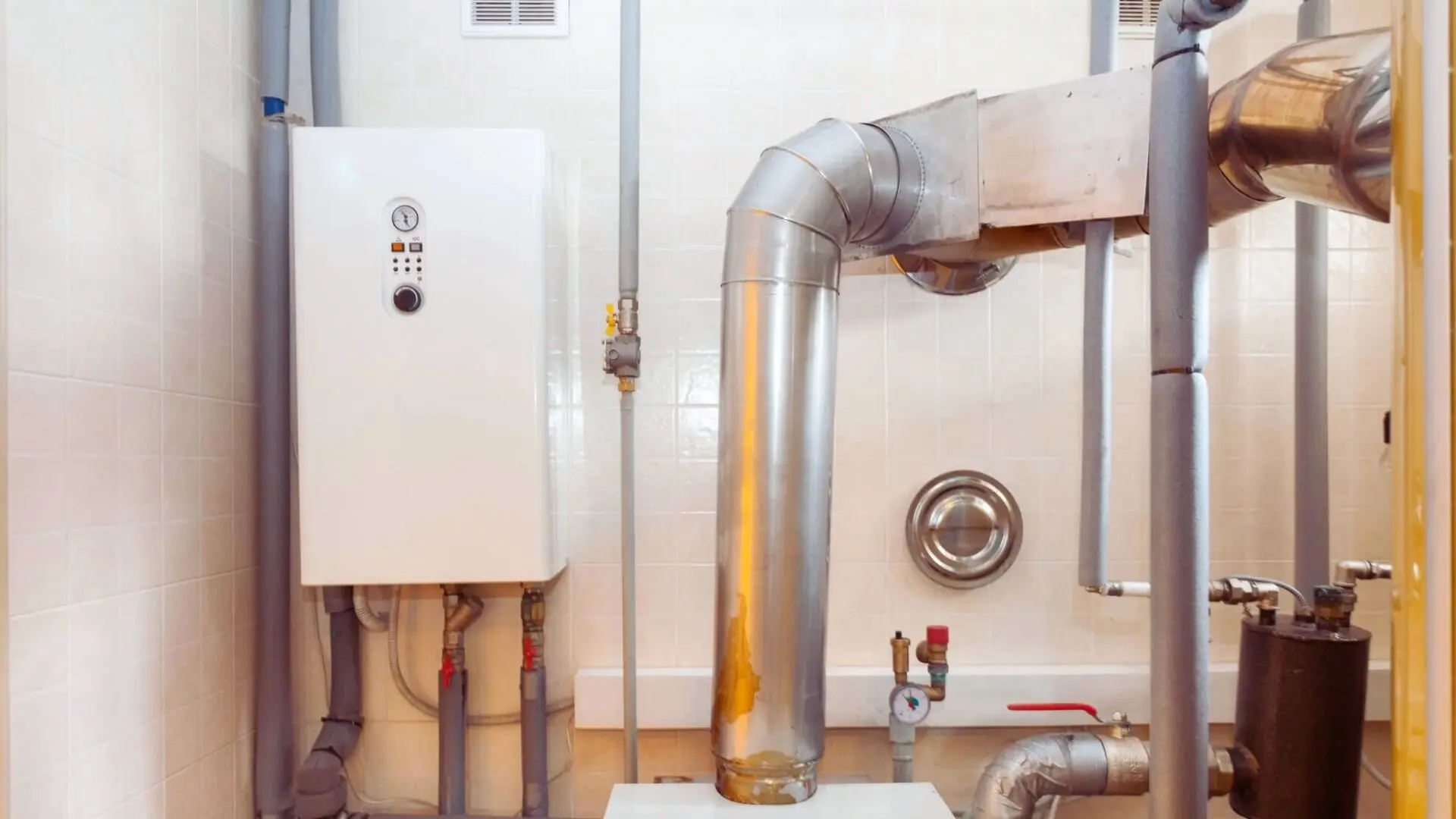
Regular maintenance also helps catch potential issues early on. By checking and servicing parts like valves, pipes, and heating elements, you can spot minor problems before they blow up into bigger ones. This proactive approach saves you from unforeseen breakdowns and keeps your daily routine running smoothly.
Another crucial aspect is water quality. Sediment build-up within the system can affect the quality of the hot water, leading to unpleasant odours, discolouration, or even potential health hazards. Regularly cleaning and flushing your hot water system can maintain clean, fresh, and safe water for your household.
Safety Precautions Before You Start
Before you embark on the task of draining your hot water system, it’s crucial to prioritise safety. Taking the proper precautions can help you avoid accidents and mishaps. Here are some essential steps to follow:
Turn off the Power or Gas Supply
Switch off the power supply at the circuit breaker or unplug the fuse at the electrical panel for electric hot water systems. If you have a gas system, turn off the gas valve. This is crucial to prevent any accidental heating while you work.
Shut off the Cold Water Supply
Locate the cold water inlet valve and turn it off. This step is essential to stop the inflow of new water into the hot water tank during the draining process, ensuring a controlled procedure.
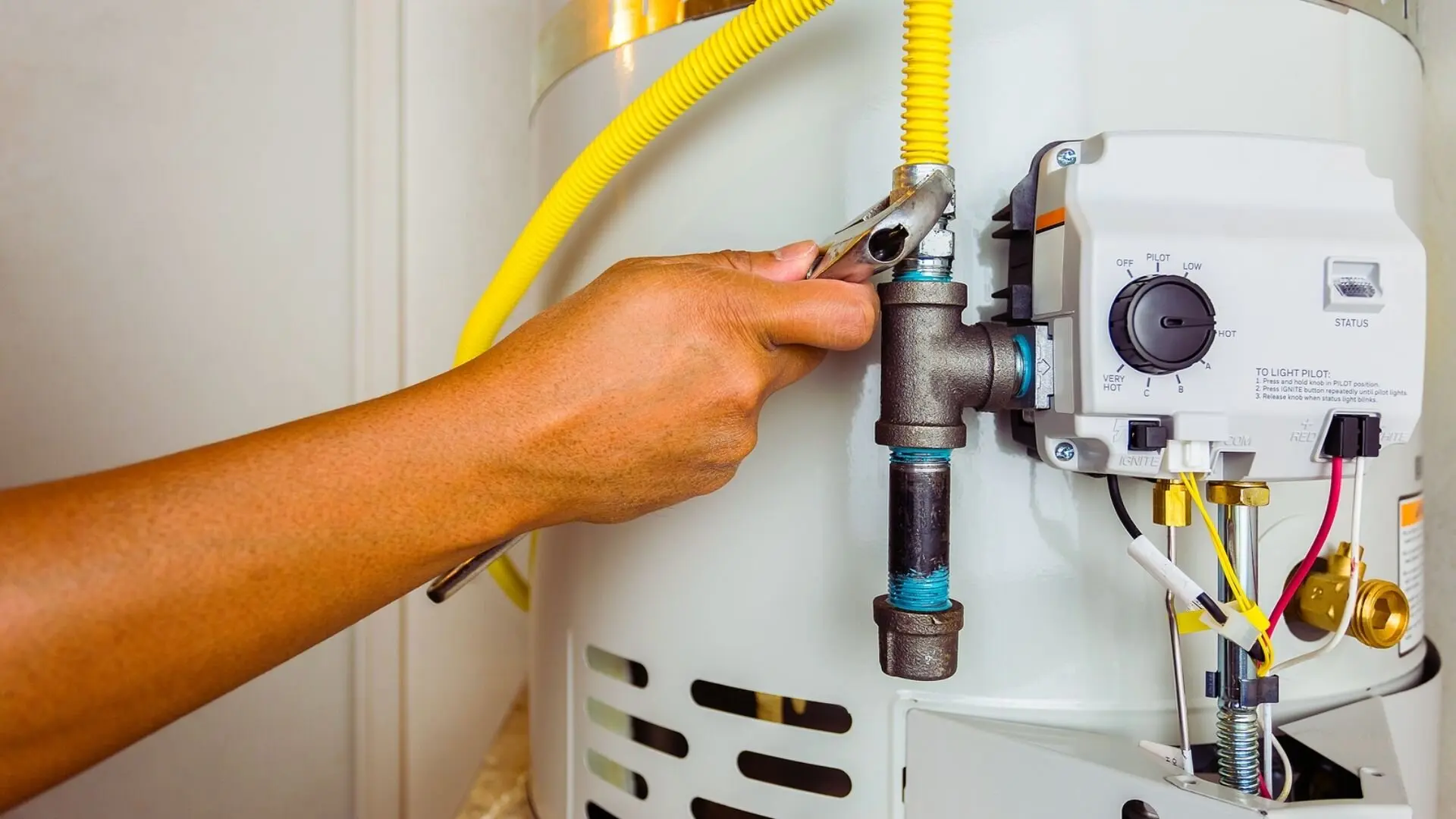
Open a Hot Water Faucet
Before you start draining, open a hot water faucet in your home. This serves two purposes: it relieves pressure within the hot water system and allows air to enter, facilitating smooth drainage. Keep this hot tap open throughout the draining process.
Allow the Water to Cool Down
Hot water can scald, causing severe burns. Give the water in the system some time to cool down to a safe temperature before draining. This prevents the risk of accidental burns.
Wear Protective Gear
Wear appropriate protective gear to prioritise your safety. Gloves protect your hands from hot water and potentially sharp edges, and safety glasses shield your eyes from splashes or debris that may emerge during the process.
Step-by-Step Guide to Draining Your Hot Water System
Your hot water system tirelessly provides a steady supply of warm water for various household needs. However, over time, sediment and mineral deposits can accumulate at the bottom of the tank, diminishing its efficiency.
Draining the hot water system is a crucial maintenance task that can help remove these deposits and ensure your system runs smoothly. In this step-by-step guide, we’ll walk you through the entire process of draining your hot water system effectively.
Step 1: Turn Off the Power or Gas Supply
Safety should always come first when working on your hot water system. If you have an electric hot water system, turn off the electrical power supply dedicated to the hot water heater at your circuit breaker.
One additional recommendation is to turn the gas or power supply off 24 hours before you attempt this process so the water in the tank has cooled down or the hot water stored has been emptied and replaced with cold water. For gas-powered systems, locate the gas valve and turn it off. This step prevents the system from accidentally heating water while you’re working on it, reducing the risk of burns or scalds.
Step 2: Shut Off the Cold Water Supply
The next step is to locate and turn off the cold water supply valve connected to your hot water system. This valve is typically located above or near the hot water heater. Closing the cold water inlet valve is essential because it stops the inflow of fresh water into the tank, ensuring a controlled drainage process.
Step 3: Open a Hot Water Faucet
To relieve pressure within the hot water system, open a hot water faucet inside your home fully. This step allows air to enter the system and facilitates smooth water flowing out of the tank during draining. Leave this faucet open throughout the entire procedure.
Step 4: Attach a Hose for Drainage
You’ll want to attach a garden hose to the drain valve at the bottom of the hot water tank to direct the water safely. The valve usually has a hose bibb or threaded connection to secure the hose. Make sure the other end leads to a suitable drainage spot, like a floor drain or outside, to prevent any flooding or damage.
Step 5: Begin the Draining Process
You can open the drain valve on your hot water tank with the securely attached hose. Be prepared for the water to be hot, so exercise caution when opening the valve.
The hot water will start flowing through the hose and into your chosen drainage area. Watch the draining process until you notice the water slowing down and eventually coming to a stop.
Once the tank is fully drained, close the drain valve tightly. Remember to turn off the hot taps you opened in Step 3. You can safely turn the cold water supply valve back on, allowing your hot water system to refill. It’s essential to give the tank ample time to heat the newly added water before you use hot water in your home again.
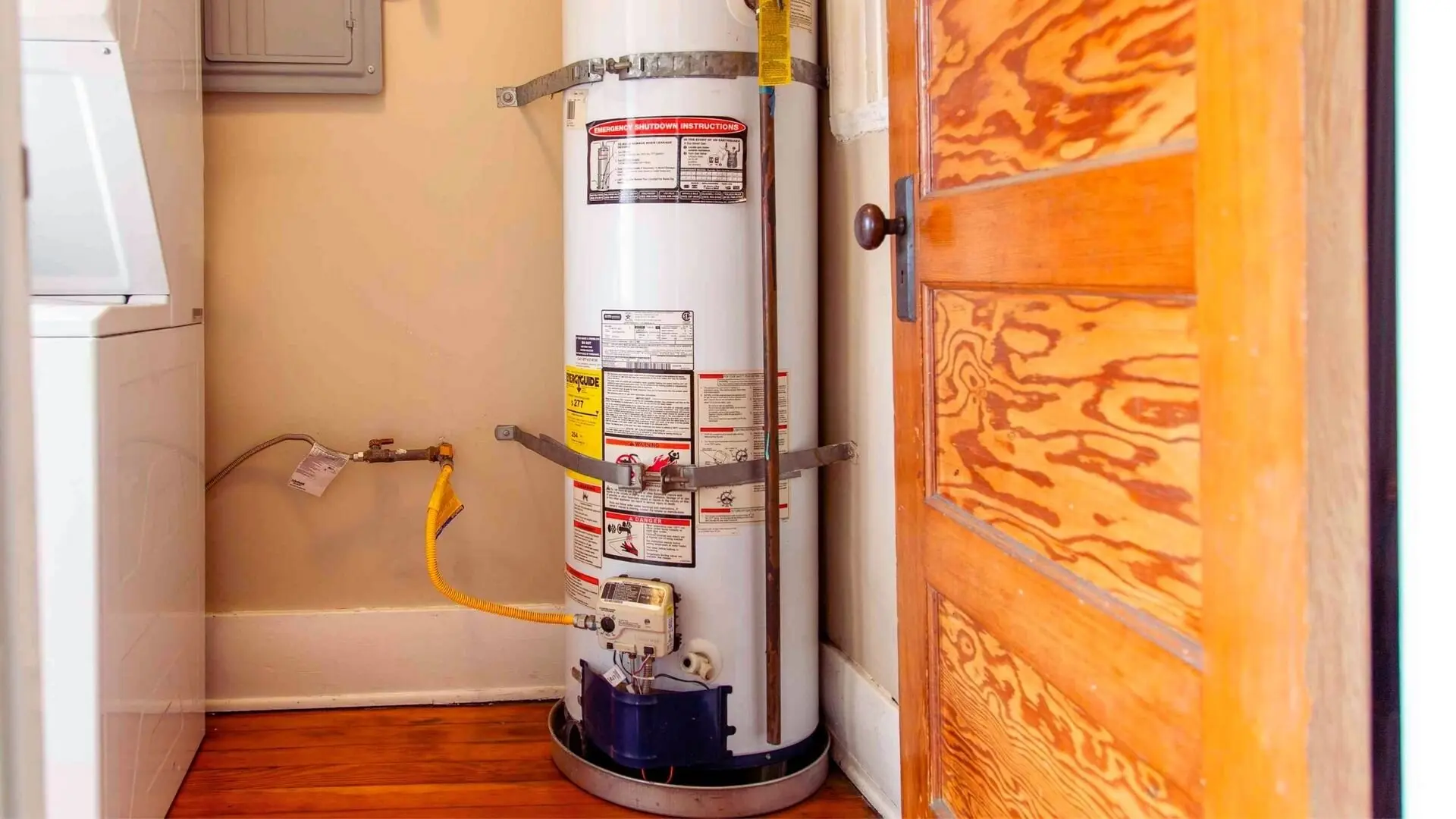
How Often Should You Drain Your Hot Water System?
Regular maintenance is the key to ensuring the longevity and efficiency of your hot water system. One crucial aspect of this maintenance is draining the hot water tank to remove sediment build-up. But how often should you undertake this task?
The frequency of draining your hot water system largely depends on the type of water in your area. If you have hard water with a higher mineral content, you may need to drain the tank more frequently. In areas with soft water, where mineral build-up is minimal, draining every 1-2 years may suffice.
A general guideline is to inspect your hot water system annually. During this inspection, check for signs of sediment accumulation, such as reduced hot water flow or unusual noises coming from the tank. If you notice these symptoms, it’s a good indicator that it’s time to drain the tank.
Another factor to consider is the age of your hot water system. Older units may require more frequent draining due to increased sediment build-up. Conversely, newer, more efficient systems may allow for longer intervals between drainings.
It’s advisable to consult your hot water system’s manufacturer guidelines or user water heater manual. These documents often provide specific recommendations for your model, considering factors like water hardness, tank size, and local water quality.
In addition to these general guidelines, pay attention to the quality of your hot water. If you notice a decrease in water temperature or a drop in heating efficiency, it may indicate that sediment affects your system’s performance. In such cases, don’t hesitate to schedule a draining sooner than your usual interval to address the issue promptly.
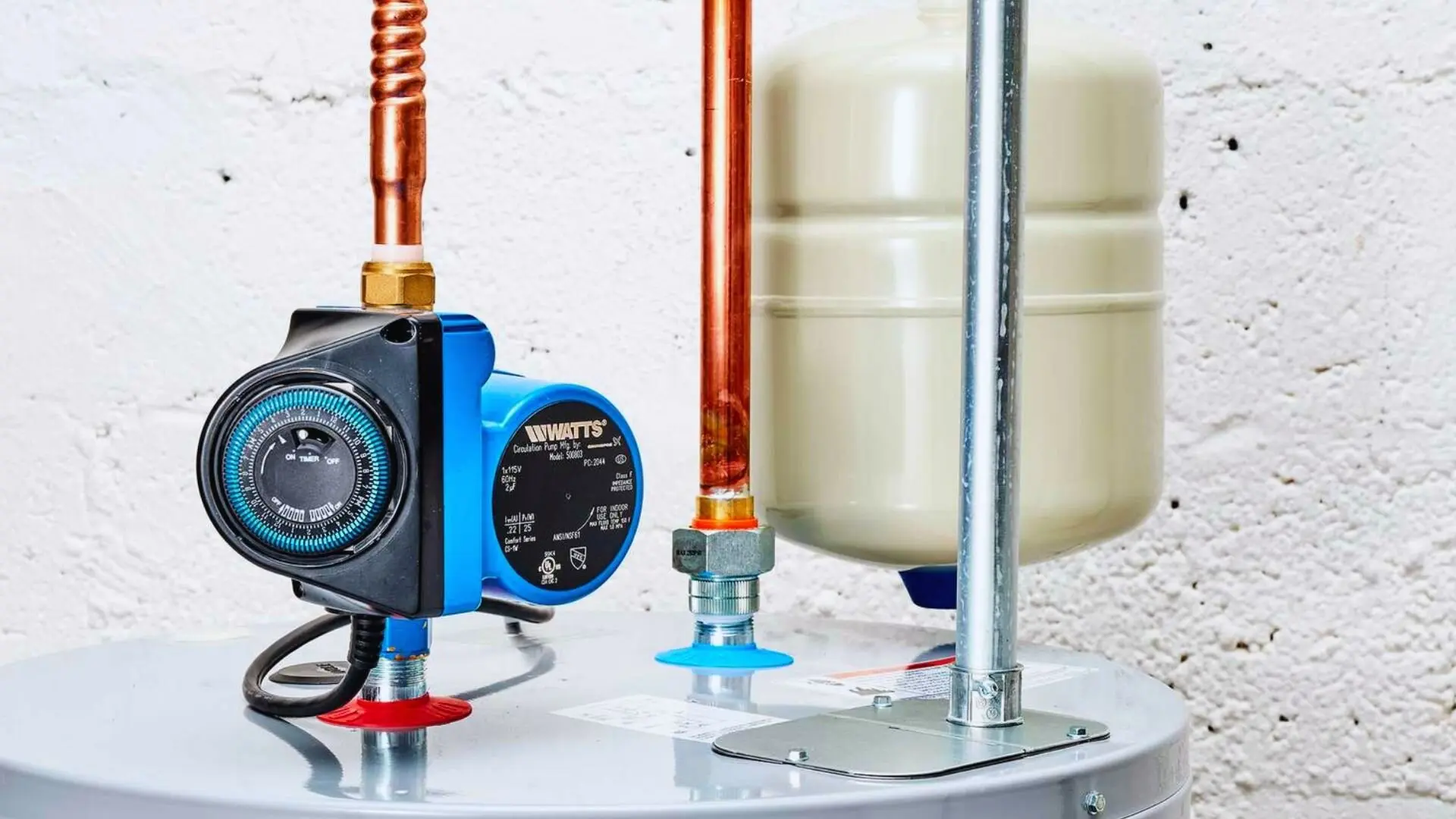
Importance of Regular Hot Water System Maintenance
Regular maintenance of your hot water system is not just a matter of convenience; it’s vital for ensuring its longevity and efficiency. One of the primary reasons to prioritise maintenance is to prevent sediment build-up.
Over time, minerals and debris can accumulate at the bottom of the tank, reducing its heating efficiency and potentially leading to costly repairs or premature replacement. Draining the tank at recommended intervals can eliminate this build-up and maintain optimal performance.
Furthermore, regular maintenance can help you identify and address issues early, preventing them from escalating into major problems. Water leaking, corrosion, and faulty valves are common hot water system issues that, if left unchecked, can lead to water damage and even health hazards. Routine inspections can catch these issues in their early stages, saving you both money and the inconvenience of unexpected breakdowns.
Efficiency is another critical aspect of hot water system maintenance. A well-maintained system operates more efficiently, consuming less energy to heat water. This reduces your energy bills and contributes to environmental sustainability by decreasing your carbon footprint.
In addition, by adhering to a maintenance schedule, you can extend the lifespan of your hot water system. Replacing a hot water system can be a significant expense and can often be postponed through regular care and attention. In essence, maintenance saves you money in the short and long run by delaying the need for costly replacements.
Signs of a Failing Hot Water System
Recognising the signs of a failing hot water system is crucial to avoid unexpected disruptions and costly repairs. One of the most common indicators is a noticeable decrease in water temperature.
If your once-hot showers are turning lukewarm or cold, it’s a clear signal that something is amiss. Strange noises, such as popping or rumbling sounds from the hot water tanks, can signal sediment build-up, reducing the system’s efficiency.
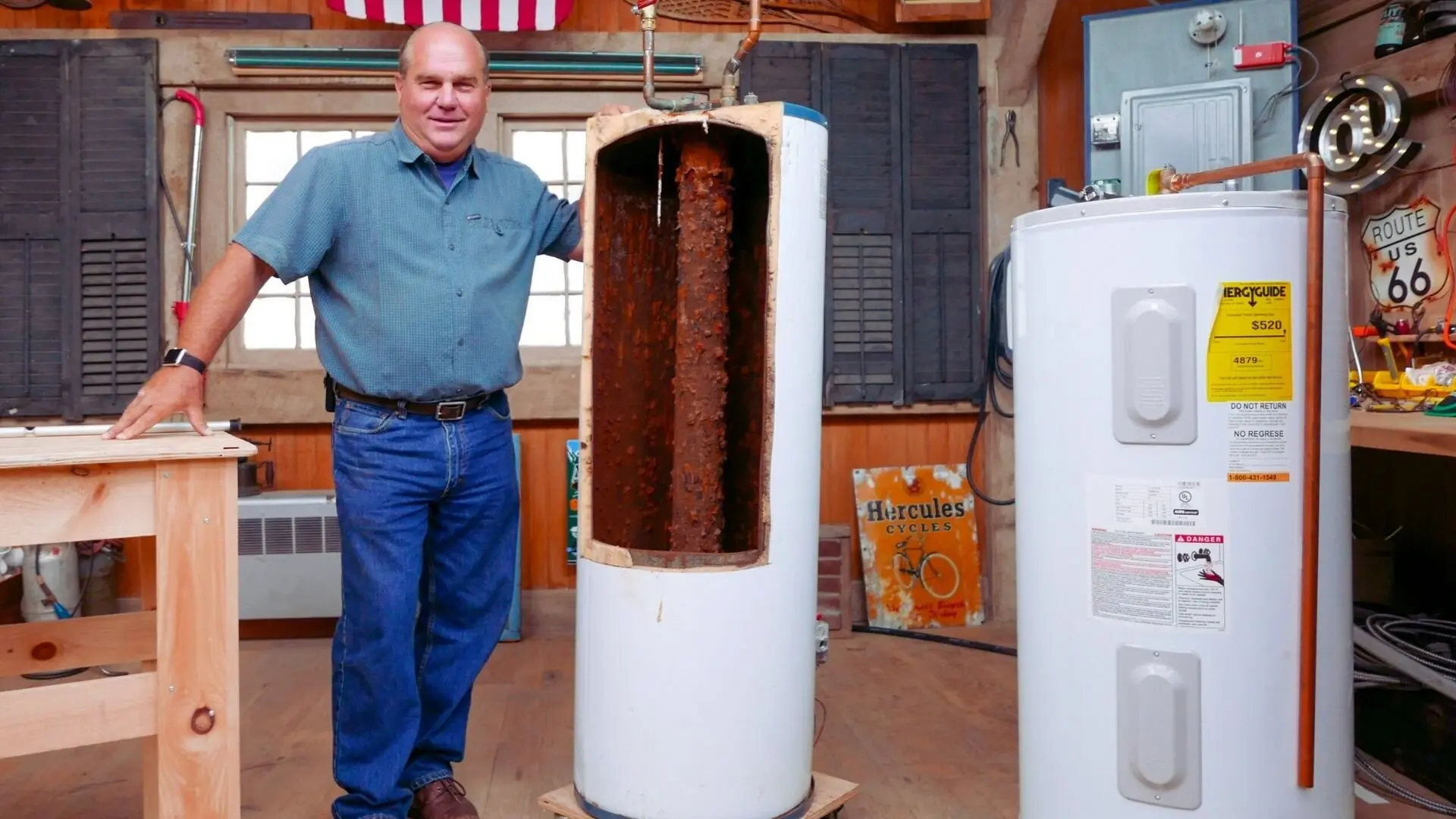
Leakage around the tank or from the pressure relief valve is another red flag. Even a tiny leak can lead to water damage and should be addressed promptly. Additionally, if you experience fluctuations in water pressure or inconsistent water flow, it may be due to a failing hot water system.
Rusty or discoloured water is another unmistakable sign of trouble. If the water from your hot water tap has a brown or reddish tint, it could indicate corrosion inside the water heater tank. This is a water quality concern and a sign of potential system failure. Finally, the age of your hot water system matters. Most systems have a lifespan of around 10-15 years. If your system is approaching or surpassing this age, it’s wise to be vigilant for any of the above signs and consider proactively replacing it to avoid unexpected breakdowns.
Benefits of Proper Hot Water System Maintenance
Properly maintaining your hot water system offers many benefits beyond just the convenience of readily available hot water. One of the most immediate advantages is improved energy efficiency. Regular maintenance, including flushing the tank to remove sediment build-up, ensures your system operates at peak efficiency, reducing energy consumption and lowering utility bills.
Enhanced longevity is another significant benefit. A well-maintained hot water system can last longer, postponing the need for expensive replacements. This saves you money and reduces the environmental impact of manufacturing and disposing of new units.
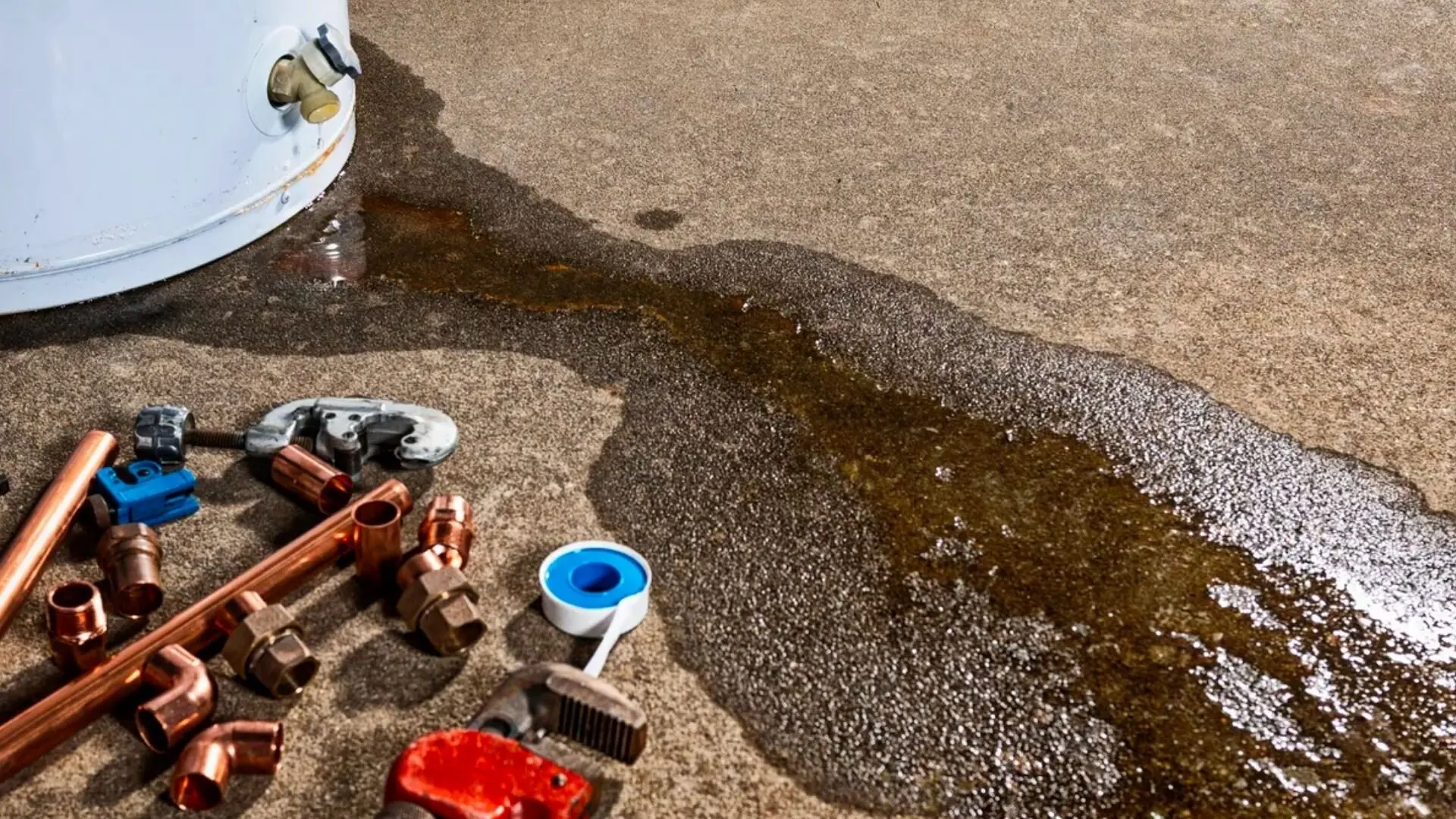
Proactive maintenance helps identify and address minor issues before they escalate into major problems. By fixing leaks, replacing faulty valves, and addressing corrosion early, you prevent potential water damage and costly emergency repairs, ensuring peace of mind for homeowners. Additionally, maintaining your hot water system contributes to improved water quality. Regular flushing removes sediment and mineral build-up, resulting in cleaner, healthier water free from discolouration or unusual odours.
One of the most significant benefits is consistent performance. With a well-maintained hot water system, you can count on a steady hot water supply when you need it most. You won’t have to worry about sudden disruptions or temperature fluctuations, whether for daily showers, household chores, or other activities.
Ensure Efficient Hot Water With Woolf Plumbing
In closing, knowing how to drain your hot water system is a valuable skill for any homeowner. Regular maintenance tasks like draining help clear out sediment and mineral buildup, keeping your system running efficiently and lasting longer. By following the simple steps in this blog, you can take on this task with confidence, keeping safety top of mind.
At Woolf Plumbing, we understand the importance of a well-maintained hot water system. Our team of licensed plumbers is here to assist you with all your plumbing needs, including hot water system maintenance, repair, and installation. We are committed to ensuring you enjoy a continuous supply of reliable hot water in your home.
Please get in touch with us if you ever need plumbing services or have questions about maintaining your hot water system. We’re here to help you with expert guidance and top-notch hot water service. Contact Woolf Plumbing today to schedule an appointment or to learn more about how we can keep your hot water system running smoothly. Your comfort and peace of mind are our top priorities.


